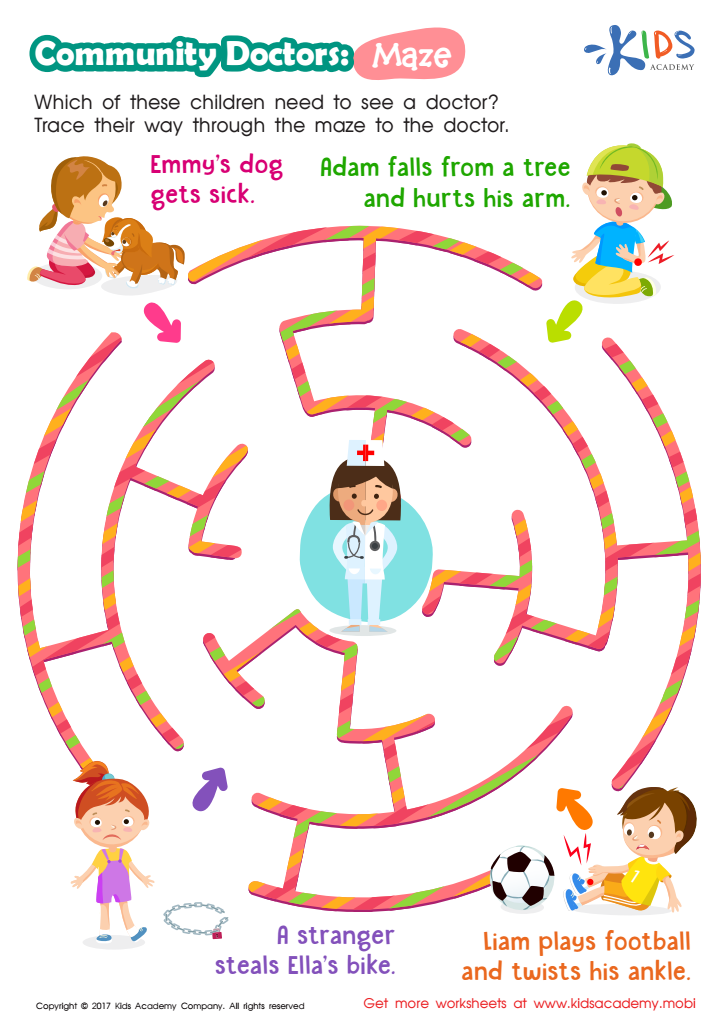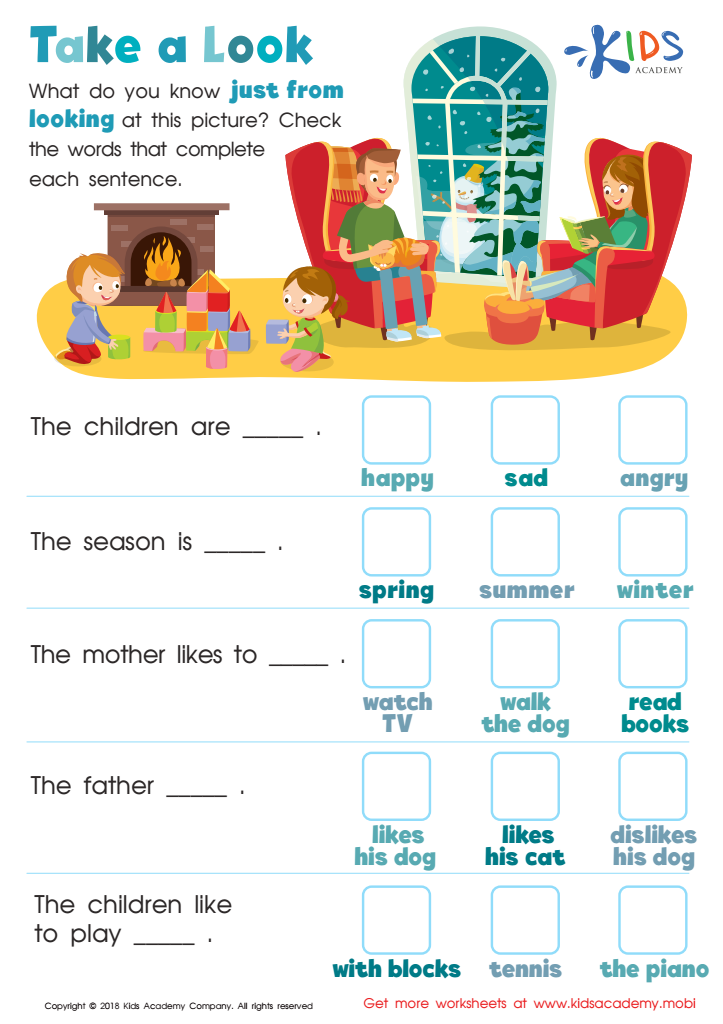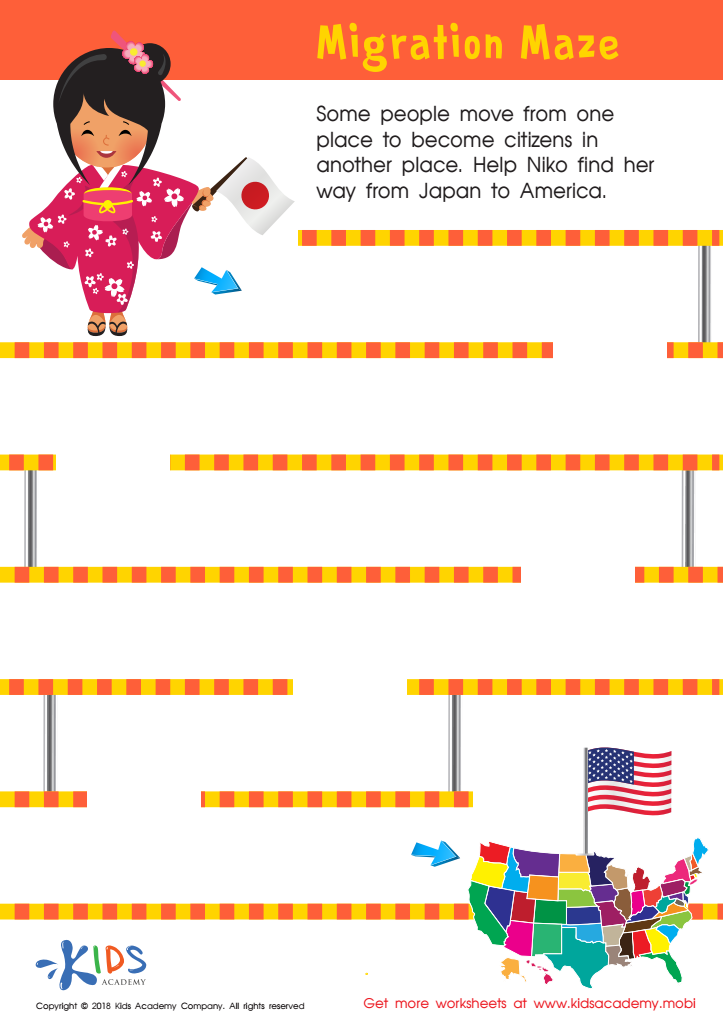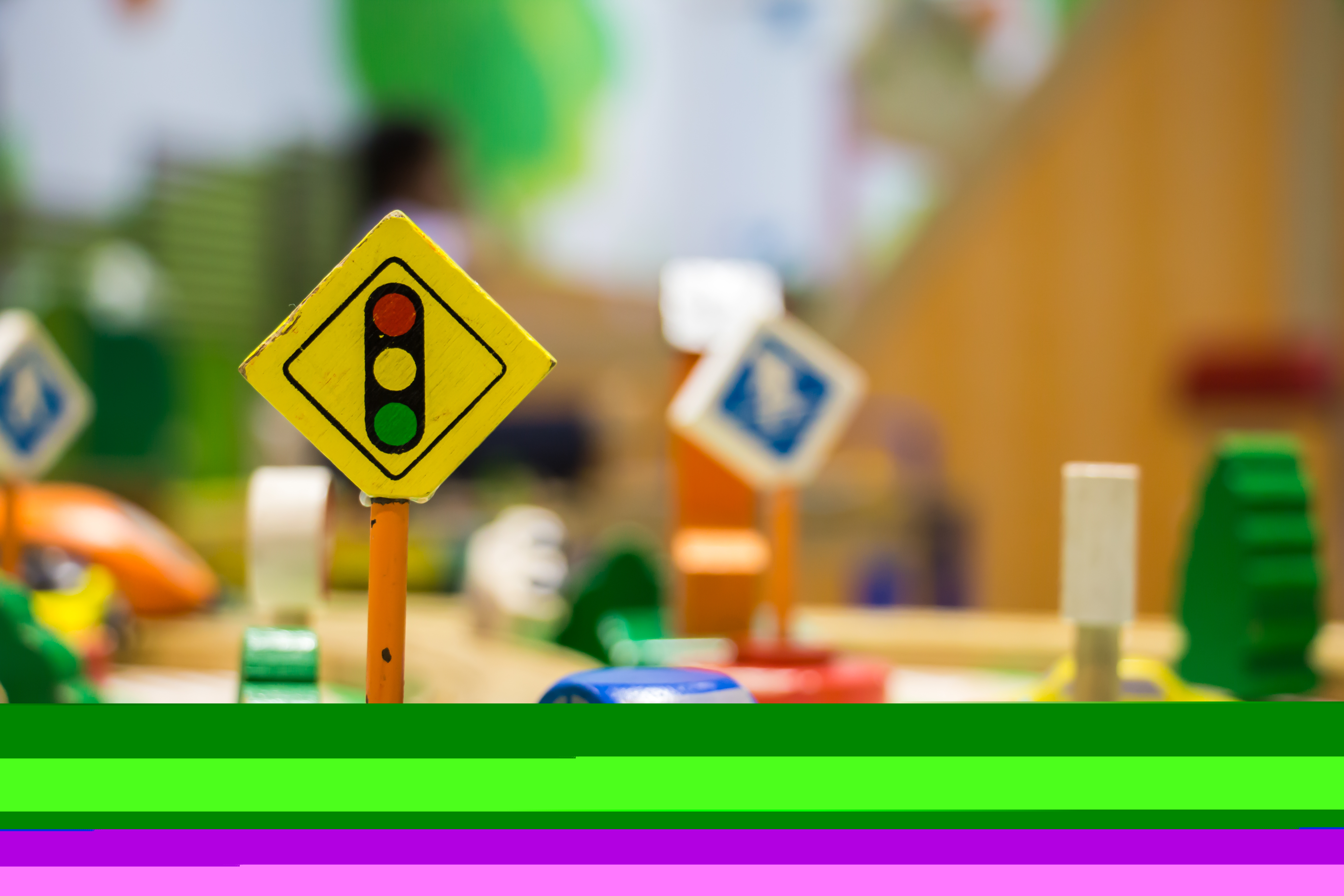Problem-Solving Skills Normal Community Worksheets for Ages 3-7
5 filtered results
-
From - To
Enhance your child's learning with our Problem-Solving Skills Worksheets designed for ages 3-7. These engaging worksheets focus on developing critical thinking and reasoning abilities, essential for navigating everyday challenges. Topics include understanding community roles, identifying problems, and finding solutions collaboratively. Each worksheet offers fun and interactive activities tailored to young learners, promoting creativity and confidence. By integrating problem-solving into social studies, children will build foundational skills for real-world scenarios. Perfect for parents and educators alike, these resources ensure a nurturing and educational experience in understanding their community. Download today to empower your child's problem-solving journey!


Community Doctors: Maze Printable


Towns Worksheet


Take a Look - Part 1 Worksheet


Migration Maze Worksheet
Parents and teachers should prioritize problem-solving skills in children aged 3-7 as these skills form the foundation for lifelong learning and critical thinking. Early childhood is a crucial time for cognitive development, and nurturing problem-solving abilities helps children learn to approach challenges with confidence and resilience. When young learners experiment with different strategies to solve a problem, they enhance their creativity, logic, and reasoning skills.
Moreover, engaging in problem-solving activities fosters emotional intelligence. Children learn to manage frustration, persist through difficulties, and collaborate with peers. These social-emotional skills are vital for building healthy relationships and developing a sense of community. Also, problem-solving empowers children to reach solutions independently and encourages them to ask questions, explore new concepts, and seek help when needed.
In a rapidly changing world, adaptability and critical thinking become ever more crucial; by cultivating these skills early on, parents and teachers equip children with the tools necessary to navigate future challenges. Developing problem-solving skills can also prepare them for academic success, making it easier to grasp more complex topics in later grades. In summary, investing in problem-solving education nurtures inquisitive, resilient, and capable individuals.

 Assign to My Students
Assign to My Students

















